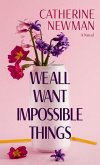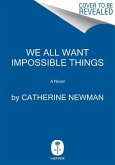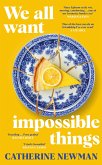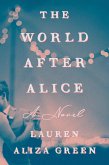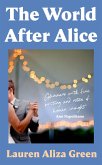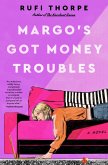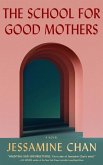Samantha Raymond cannot say what it was exactly that lead her to buy a house and to move out of the suburban comfort zone with her husband Matt and their teenage daughter Ally. Maybe Trump’s election, maybe the feeling of menopause hitting her or just the fact that she spends her nights awake
pondering about her life and all that is connected to it: motherhood, mortality and the country she lives…mehrSamantha Raymond cannot say what it was exactly that lead her to buy a house and to move out of the suburban comfort zone with her husband Matt and their teenage daughter Ally. Maybe Trump’s election, maybe the feeling of menopause hitting her or just the fact that she spends her nights awake pondering about her life and all that is connected to it: motherhood, mortality and the country she lives in. Via the Internet, she connects with some radical women whose notions are new to her. But sorting out her new life also means getting more and more away from her old life and her daughter. Has she ever been a good mom? Didn’t she do all that was necessary to bring Ally up? And what did she use her one life for actually?
In her novel “Wayward”, Dana Spiotta portrays a woman at a crucial point of her life. She made some decisions that now come under scrutiny. It is not only the outer, visible elements of her life but much more her inner convictions that have to stand the test. Her first move sets in motion a chain of events that bring her further away from all she has known for so many years and it remains to be seen where this will lead her.
What I liked most was the combination of metaphors the author uses. The old house that Sam finds and is attracted to immediately mirrors her body. Just like the cosy new home, life also has left traces on her body. Just like she renovates the house, she starts to train to get stronger. However, all the renovation cannot hide that the years have left their marks on it and some things simply cannot be redone.
Just as she analyses her complicated relationship with her own mother and also with her daughter, she analyses the state the country is in. The opposing parts become obvious through the segregation between the white and better-off parts of town and her new place which is quite the opposite. Coming from a protected life, she is now confronted with crime which has always been a reality for other parts of society, but not the suburban housewives she has known for so long.
The novel has a clear feminist perspective. Sam volunteers at a small museum that was the home of a 19th century feminist who ignored societal constraints and followed her ideals, also Sam’s mother is an independent woman, whereas she herself had given in to a life that she now is running from. Her daughter also tries to rebel against Sam’s life choices and wants to free herself - in her very own way. All women make choices that have consequences, all woman have to decide between conformity and rebellion, they want their life to be meaningful – but what does that mean and what is the price for it?
An interesting read from a point of view that is slowly expanded to show the bigger picture.


